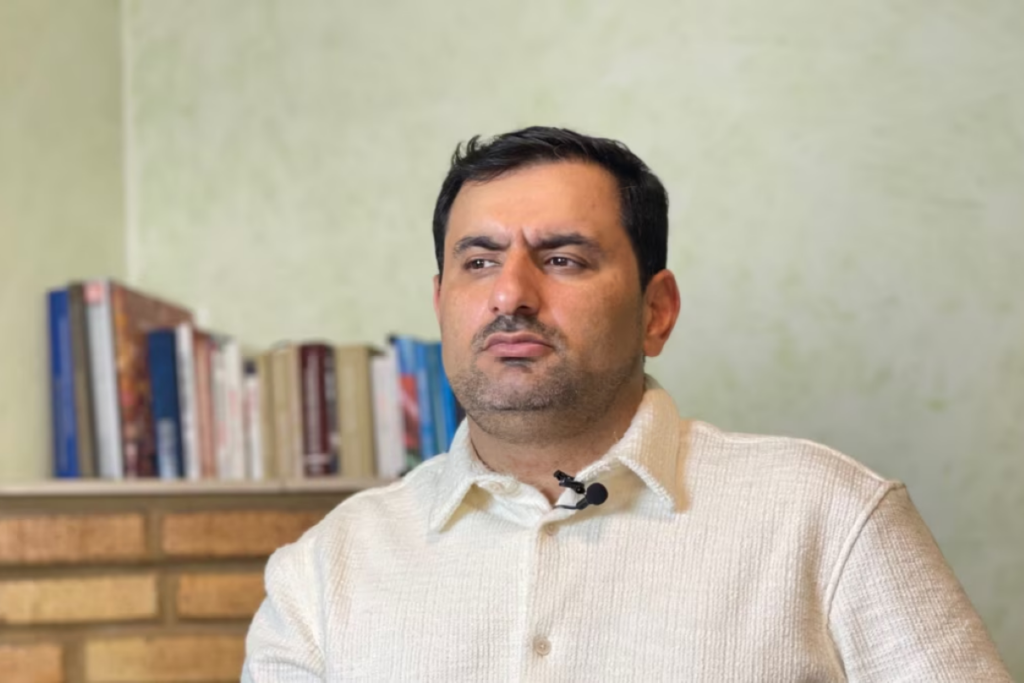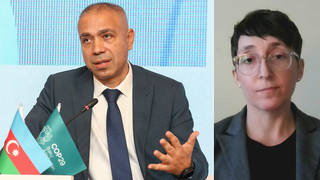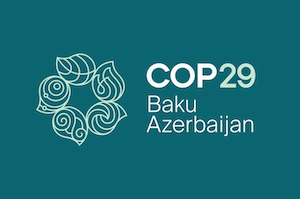New York, September 3, 2025—The Committee to Protect Journalists condemns Azerbaijani authorities’ addition of seven new charges against 10 incarcerated journalists in relation to a currency smuggling case against the independent outlet Meydan TV, as well as the arrest of photojournalist Ahmad Mukhtar.
“The latest financial crimes charges against the prize-winning Azerbaijani outlet Meydan TV echo those recently used to sentence seven other journalists to lengthy prison terms, underlining the unprecedented scale of Azerbaijan’s drive to crush the independent press,” said Gulnoza Said, CPJ’s Europe and Central Asia program coordinator. “Azerbaijan should release more than two dozen journalists and media workers unjustly incarcerated in their recent crackdown, including the latest detainee, Ahmad Mukhtar.”
On August 28, 10 journalists — arrested on currency smuggling charges involving Berlin-based Meydan TV on the dates below — were charged with seven additional crimes, including illegal entrepreneurship, tax evasion, and money laundering:
- December: Meydan TV’s Natig Javadli, Khayala Aghayeva, Aytaj Tapdig, Aynur Elgunesh, Aysel Umudova, and Ramin Jabrayilzade.
- February: independent journalist Shamshad Agha, who works with Meydan TV.
- March: Meydan TV freelancers Nurlan Gahramanli and Fatima Mövlamli.
- May: independent journalist Ulviyya Ali, who has denied any affiliation with Meydan TV.
The charges are identical to those against the seven journalists linked to Abzas Media, carrying a sentence of up to 12 years. Since late 2023, at least 21 journalists and media workers have been jailed on allegations of illegal Western donor funding, as relations with the West deteriorate.
On August 28, a court remanded Mukhtar in pretrial detention for 40 days. He was previously arrested in December with six Meydan TV journalists and accused of smuggling money. He served a 20-day sentence on separate charges of hooliganism and disobeying police. CPJ was unable to determine the latest charges against Mukhtar.
Authorities have accused several leading independent outlets of failing to obtain the legally required approval for foreign grants. Defense lawyers argue that this omission is punishable by fines, not criminal sanctions.
Exiled human rights lawyer Subhan Hasanli told CPJ that authorities generally refuse to register independent organizations seeking foreign grants, making it impossible to legally receive them.
CPJ emailed the Ministry of Internal Affairs, which oversees the police, for comment, but did not immediately receive a reply.
This content originally appeared on Committee to Protect Journalists and was authored by CPJ Staff.
This post was originally published on Radio Free.






